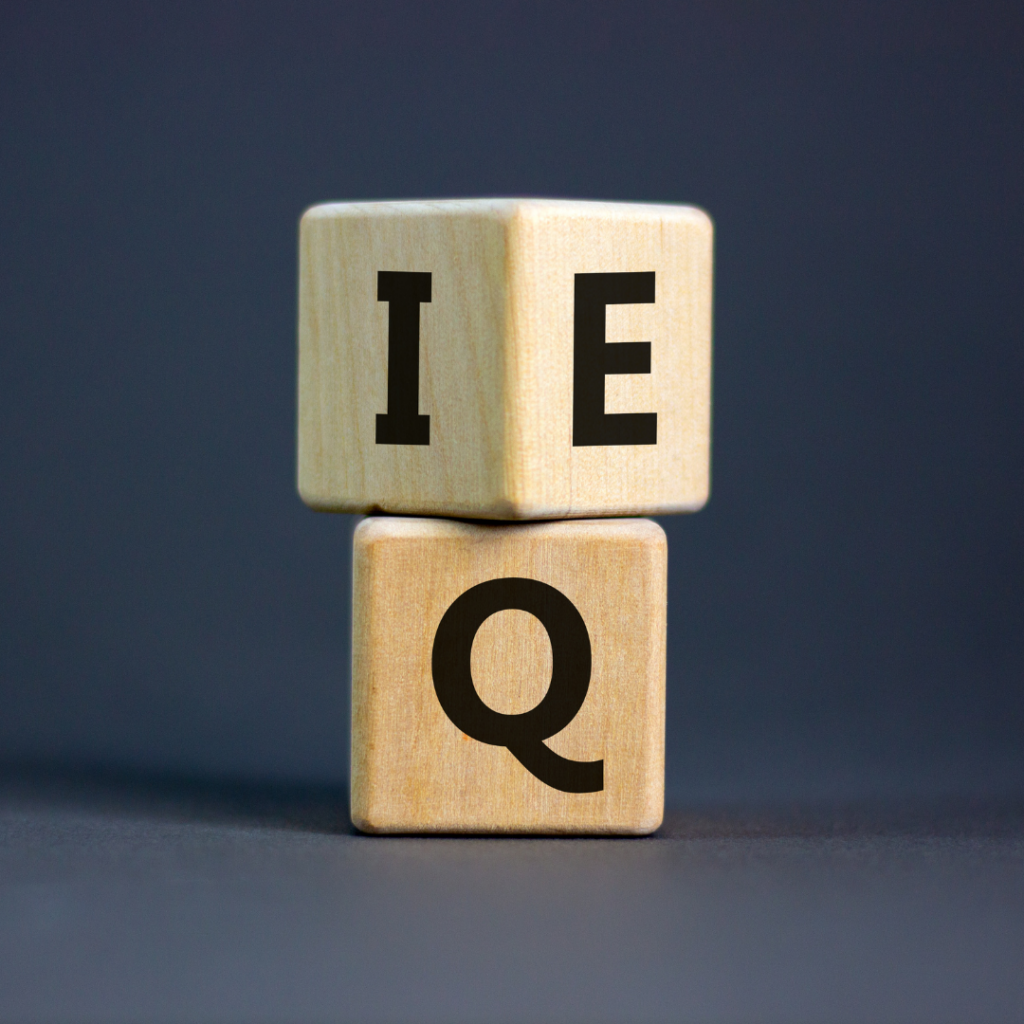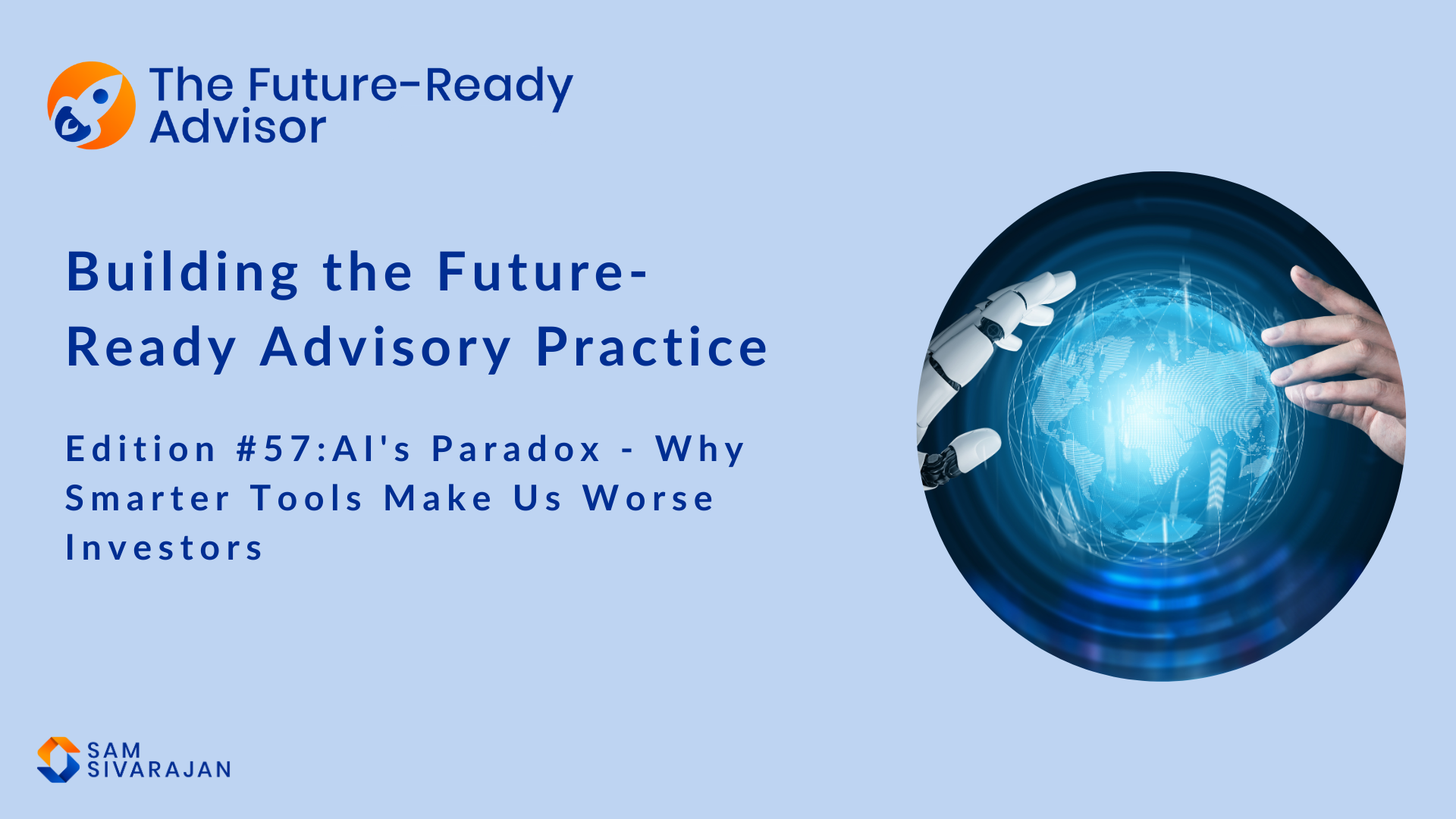Welcome to the 57th edition of #theFutureReadyAdvisor Newsletter!
Subscribe & join the conversation. Share comments and feedback.
The Silicon Valley Illusion
Silicon Valley has long promised us that AI would enhance our capabilities, freeing up our cognitive resources for higher-level thinking. The premise seemed logical: if AI handles the mundane tasks, humans can focus on creativity and innovation.
But recent research from Microsoft Research and Carnegie Mellon tells a different story. Their findings reveal something concerning: our reliance on technology appears to be weakening crucial cognitive abilities rather than enhancing them. The more we depend on AI to think for us, the less we exercise our own mental faculties.
This echoes what Swiss researcher Dr. Michael Gerlich discovered in his recent study: participants who reported higher use of AI scored worse on measures of critical thinking. It seems we’re not using our freed-up cognitive resources for innovation, but rather for more passive consumption—often of content curated by the very same AI algorithms.
Perhaps no example illustrates this cognitive deterioration more clearly than our relationship with GPS technology. Before GPS, we navigated using paper maps and spatial awareness, building mental models of our surroundings and developing an innate sense of direction. Today, we blindly follow turn-by-turn directions, sometimes with disastrous results. Numerous documented cases exist of drivers following GPS into dangerous situations—into lakes, down boat ramps, onto closed roads in Death Valley, and onto impassable seasonal routes that leave travelers stranded for days. Park rangers and rescue teams regularly report rescuing tourists who followed their GPS rather than heeding posted warning signs or their own common sense.
These aren’t isolated incidents—they reflect a fundamental shift in how we interact with our environment. Research from University College London confirms that consistent GPS use actually atrophies the hippocampus, the brain region responsible for spatial navigation and memory. The convenience of never getting lost has robbed us of the ability to find our own way. Similarly, our growing dependence on financial technology may be undermining our ability to make sound investment decisions.

The Emotional Intelligence Gap
Financial decisions, despite all our spreadsheets and calculations, are fundamentally emotional. We don’t save for retirement because of mathematical projections; we save because we desire a future state where we feel secure, independent, and fulfilled.
This emotional foundation of decision-making is something AI simply cannot replicate. AI can analyze patterns, process vast amounts of data, and generate recommendations, but it cannot understand what it feels like to worry about providing for your children’s education or the emotional weight of inheriting wealth from a departed loved one.
In my years working with clients, I’ve observed that people don’t make decisions based solely on rational considerations about what maximizes their financial returns. They make decisions based on:
- How they believe those decisions will make them feel in the future
- Their unique values, shaped by personal experiences AI could never have or understand
- The confidence that comes from human connection and understanding
When a client says, “I want to leave something meaningful for my grandchildren,” they’re not just calculating estate tax implications. They’re expressing a deeply personal value born from their own life experiences, family history, and emotional connections.
This is where human advisors hold their greatest advantage. While AI excels at pattern recognition, data processing, and repetitive analysis, human advisors shine in areas that define meaningful client relationships:
- Emotional intelligence: Recognizing unspoken concerns in a client’s voice or body language
- Contextual understanding: Appreciating how a client’s unique history shapes their relationship with money
- Trust-building: Creating the psychological safety needed for clients to reveal their true financial fears and hopes
- Wisdom: Drawing on life experience to provide perspective that algorithms cannot
As one client once told me, “I don’t need someone who can run numbers better than a computer. I need someone who understands what these numbers mean for my life.”

Cultivating the Human Edge
The path forward isn’t about choosing between technology and humanity—it’s about finding the right relationship between them. The most effective advisors will use AI as a powerful tool, not as a replacement for human judgment. They’ll leverage technology to handle computational tasks, data analysis, and pattern recognition, freeing themselves to focus on what truly matters: deep client relationships built on understanding, empathy, and trust.
This parallels what we see in the most enduring institutions. Research on century-old companies shows they didn’t succeed through efficiency alone. Companies like Zildjian (the cymbal maker founded in 1623) or Tsuen Tea (the Japanese tea house in operation for over 850 years) endure because they understand that their core value stems from something algorithms can’t replicate: personal taste, human judgment, and intangible experience.
So how do advisors maintain their human edge in an AI-powered world? Here are three approaches:
- Deepen, don’t broaden: Instead of trying to simply serve more clients with AI, use technology to go deeper with each client. The value isn’t in scaling relationships, but in enriching them.
- Practice attentive listening: In a world of distractions, being truly present with clients becomes a rare and valuable skill. When you give a client your undivided attention, you can detect nuances that AI would miss.
- Invest in emotional intelligence: Technical knowledge is increasingly commoditized by AI. Emotional intelligence—the ability to recognize, understand, and work with emotions—is becoming the true differentiator.
The greatest threat to advisors isn’t AI replacing them; it’s failing to develop the human skills that AI cannot replicate. Technical competence remains necessary, but emotional intelligence becomes paramount.
As our society grapples with technology’s impact on our cognitive abilities, financial advisors have a unique opportunity to demonstrate the irreplaceable value of human connection. By combining the computational power of technology with the uniquely human capacity for empathy and understanding, they can offer something truly valuable: guidance that addresses not just portfolios, but people.
When it comes to our brain muscles, the old gym adage still applies: use it or lose it.
What do you think? Is technology enhancing your client relationships, or creating distance? How do you balance the efficiency of AI with the necessity of human connection?


